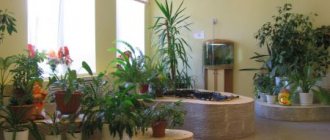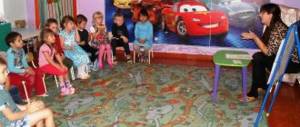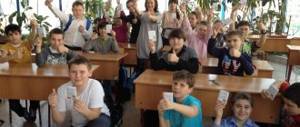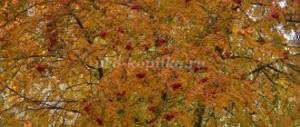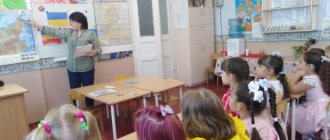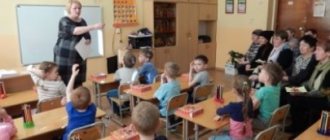Questionnaires for parents on environmental education
Lazebnaya Olga
Questionnaires for parents on environmental education
Questionnaire for parents
«Environmental education in the family»
Questionnaires for parents on environmental education
Questionnaire No. 1
“ Parents’ attitude to the problem of environmental education ”
1. What is ecology ? ___
2. Do you have indoor plants and what kind? If not, why not? ___
3. Does the family have a dog, cat or other animals?
4. Have you planted a tree?
5. Have you ever made bird feeders?
6. Do you read books about nature to your child?
7. Does your child watch filmstrips, slides, or TV shows about nature?
8. Does your child like to be in the forest?
9. Do you often go to the forest with your child?
10. Does your child know the names of trees, flowers, berries, etc.?
11. Do you tell your child about the benefits of trees, medicinal herbs, berries, insects, birds?
12. Does your child know poems, riddles, sayings, and proverbs about nature?
13. Does your child show a caring attitude towards animals and plants?
14. Do you think your child receives knowledge about nature in kindergarten?
Questionnaire No. 2
«Environmental education of preschool children»
Dear parents !
As part of the implementation of environmental educational projects, a preschool educational institution conducts a survey of parents on the issues of environmental education of preschoolers . We would like to know your opinion about the work of the kindergarten, teachers , and additional education teachers with children on environmental education .
1. Do you consider environmental education of preschool children ?
• Yes
• No
• Don't know
2. How do you understand what ecology , what it studies, what it does?
___
___
___
3. Do you think the state of a child’s health depends on the state of the environment?
• Yes
• No
• Don't know
4. In what joint activities do you carry out environmental education of children in the family ?
• Conversations with a child about nature
• Feeding birds
• Camping
• Observation of natural objects
• Reading fiction with natural history content
• Other forms___
5. How do you assess the level of environmental knowledge of your child?
• High
• Average
• Short
6. Do you introduce children to the rules of behavior in nature?
• Yes
• No
7. What information would you like to receive from a preschool institution on environmental education for preschoolers___
8. How do you evaluate the work of a preschool institution in environmental education of preschoolers ? ___
Thank you for your participation!
Questionnaire No. 3
"Birds of our city"
FULL NAME___
Age group___
1. Do you know what ecology , what it studies, what it does?
___
2. Did you know that the preschool institution deals with environmental education of children regarding the bird life of our city?___
3. Are you personally interested in this problem?___
4. Do you feel from your child that the preschool educational institution pays a lot of attention to environmental education ?___
How is it shown?___
The child talks a lot about birds, pays attention to the nature around him, asks to take him to the park, forest, asks to read about birds (underline as appropriate)
.
5. How do you feel about nature, do you like birds?
___
How can you help preschool educational institutions take care of the birds of our city?
___
6. Do you support the work being done in preschool educational institutions on environmental education of preschoolers regarding birds?___
How is it shown?
Talked with the child about nature, about birds, feed the birds, go out into nature more often, observe birds with children, plant trees, protect nature (underline as appropriate)
.
7. Do you introduce children to the rules of behavior towards birds?___
Is it necessary to do this?___
8. What do you need help from the preschool educational institution with this problem? (How to observe birds, take care of birds, how to watch them feed, how to introduce rules of behavior in nature, what practical activities in nature can be done with children)
___
9. How do you evaluate the work of the preschool educational institution on this issue?___
10. Your suggestions and wishes.
___
Thank you for your attention!
Questionnaire No. 4
“How competent are you in environmental ?”
1. Do you think that there are environmental problems ? Which? ___
2. In your opinion, do you have enough information about the nature of our city to answer the questions your child has?
___
3. How often do you and your child go on outdoor trips?
___
4. Do you think your child is familiar with the rules of behavior in nature? And you?___
5. What events could you propose to hold on environmental topics in a group or for the city? ___
6. Do you think there are problems related to household waste in our city? Which? ___
Goals and objectives of environmental education of preschool children in interaction with parents
Preschool age is a unique period in the comprehensive development and formation of a child’s personality.
Properly organized environmental education is of great importance, allowing one to lay the foundations for a positive attitude towards the surrounding nature and the world. In preschool age, the child begins to gradually distinguish himself from the environment, realizes his “I”, he develops an emotional and value-based attitude towards the people around him, the foundation of a moral and ecological position is formed, which later manifests itself in the process of the child’s interaction with nature and the awareness of inseparability with her. That is why it is very important to begin as early as possible to develop in children primary knowledge of the rules and norms of behavior in nature, interaction with it, and to cultivate empathy for environmental problems and their solutions. Accumulating knowledge in the field of nature and ecology in preschool children is not an end in itself. Knowledge is one of the necessary conditions for a child to develop an effective, emotional and moral attitude towards the world around him.
Finished works on a similar topic
- Coursework Work with parents on environmental education of preschool children 480 rub.
- Abstract Work with parents on environmental education of preschool children 230 rub.
- Test work Work with parents on environmental education of preschool children 240 rub.
Receive completed work or advice from a specialist on your educational project Find out the cost
Note 1
The goal of environmental education of children in preschool educational institutions is the formation of the principles of environmental culture and the development of environmental thinking and consciousness, a responsible attitude towards the environment.
Achieving this goal involves compliance with the legal and moral principles of environmental education, which are based on:
- Promoting conservation
- Active activities in the study of environmental protection
- Formation of a respectful attitude towards the nature of the Native Land
Nature, within the framework of environmental education, is understood not only as the external environment, but also as the inner world of man, since he is part of this nature.
Achieving the goal of environmental education involves solving a number of problems:
- Educational objectives are aimed at developing ideas and knowledge about existing environmental problems and possible ways to solve (prevent) them.
- Educational objectives are aimed at developing motives, habits and needs for environmental activities and environmental behavior, as well as healthy lifestyle.
- Developmental tasks - aimed at developing practical and intellectual skills in studying and assessing the state of the environment, as well as developing the desire for active environmental protection activities.
Too lazy to read?
Ask a question to the experts and get an answer within 15 minutes!
Ask a Question
A kindergarten is one of the first links in the system of continuous environmental education and training of children, which is why teachers of preschool educational institutions are faced with the task of forming in children the foundations of environmental culture and rational use of natural resources.
Note 2
Environmental education of preschool children, carried out in kindergarten through the entire pedagogical process, which involves working with children in the classroom and in everyday life.
Working with parents in preschool educational institutions on environmental education of children
Experience working with parents on environmental education of preschool children
Description of material:
I offer you experience in working with parents on environmental education of preschoolers. This material is intended for educators working in preschool educational institutions. The family occupies an important place in the environmental education of the child. It is in the family that the foundations of a spiritual and cultural image are formed, tastes and habits are laid. Young children are extremely dependent on their family. Cooperation with the family is one of the most important conditions for organizing an effective educational process in a preschool educational institution. In order for parents to become active assistants to teachers, it is necessary to involve them in the life of the kindergarten. Cooperation with children's families on environmental issues and jointly organized events help ensure the unity and continuity of the pedagogical process. Our group works very closely on environmental education with the family. Only by relying on the family, only by joint efforts can we solve the main task - raising an environmentally literate person. I want to share my joint experience with parents in environmental education of preschoolers. Goal: to show parents the need to instill an environmental culture in children, to involve parents in joint work to develop an environmental culture in preschool children. When working with parents on environmental education of children, we use various forms and methods. Of course, there is no escape without traditional methods - consultation and conversation. Consultations were prepared for parents: “Nature, family, child”, “Ecology in a child’s life”. One of the most important conditions for solving the problems of environmental education, in my opinion, is the organization of a developing subject environment. In our group, together with parents, a corner of cognitive development has been organized. Here children play board-printed didactic games, look at pictures of animals and plants. The main feature of the nature corner is its close proximity to children, which allows organizing various activities throughout the school year. In our corner of nature there are indoor plants, and we also annually arrange a “Vegetable Garden on the Window Sill”
When organizing activities to care for plants, we focus on the need to care for them, we explain to children that they need to care for plants not for themselves, but for them: they are alive and need our care. Experimentation Corner. In it, children carry out a variety of research activities, including independent ones. In the corner there are various flasks and test tubes. Natural materials intended for various studies are stored in the corner: sand, clay, stones, plant seeds, cones, mosses, pieces of tree bark.
Our group has a library purchased by parents, which contains educational and artistic children's literature on environmental education. In this part of the ecological corner, children look at illustrations about nature and have conversations. Every year, my parents and children design a “Vegetable Garden on the Window Sill.” Goal: to develop children’s knowledge of how to care for plants indoors, to develop in children a consciously correct attitude towards natural phenomena and objects, and to cultivate a caring attitude towards their work. The decoration of our group plot is the flower beds, which are lovingly cared for by parents and children.
The parents of our group took an active part in the project activities. During the implementation of the “Seeds of Future Plants” project, together with my parents, we purchased seeds, soil, containers, prepared equipment, and planted a vegetable garden on the windowsill. We took part in the family work competition “Magic Seeds.” When implementing the “Air Wizard” project, parents took part in the design of a subject-development environment and held conversations with children at home “The Role of Air in Human Life.” We use homework in our work with parents. We invite parents and children to observe nature, then tell, convey their impressions in a drawing, prepare natural material, collect plant seeds to replenish the group collection. Every year our group holds the “Autumn Fantasies” competition. In their works, children, together with their parents, reflect the themes of nature: landscapes, animals, flowers, birds.
Thanks to our work, parents have become active participants in the educational process; interaction with the family has allowed us to achieve the greatest results in working with children. Parents have become interested in independently improving the environmental culture of their children.
We recommend watching:
Environmental education of children in kindergarten Analytical report of preschool educational institutions on the organization of work. Section “Environmental education” Scenario of a leisure program for older preschoolers Environmental project in kindergarten
Similar articles:
Ecology in music
Plot-based didactic games on ecology in kindergarten for middle group children
Ecological holidays and leisure activities in preschool educational institutions. Scenarios
Appendix 3. Approximate topics of conversations and consultations with parents on environmental education
1. Without harming nature. (Discuss the rules of behavior in nature.)
2. Let the grass bloom! (Introduce herbaceous plants, talk about their benefits, and how to take care of them.)
3. Bow down to the berry. (Talk about the berries of the Moscow region, tell what knowledge can be given to children, the rules for picking berries, their protection.)
4. Winged doctors. (Introduce birds that you can follow
observations; what to pay attention to, what help we can provide them in winter; what kind of food can I feed?)
5. Treasures of the forest. (The role of the forest in human life; what a person gets from the forest, how to behave in the forest; human help to the forest.)
6. Poisonous plants. (Introduce them to the rules for handling them, protection of poisonous plants.)
